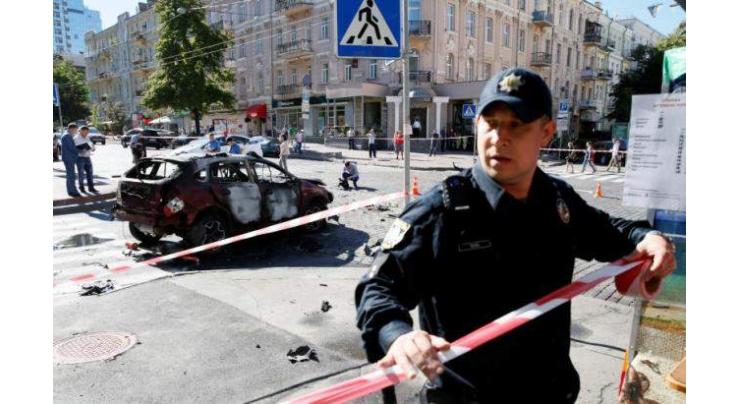
Pavel Sheremet: Fearless Journalist Killed In Ukraine
Rukhshan Mir (@rukhshanmir) Published July 20, 2016 | 07:26 PM

KIEV, (APP - UrduPoint / Pakistan Point News - 20th july, 2016) - Belarus-born journalist Pavel Sheremet, who was killed by a car bomb in central Kiev on Wednesday, was known for his fearless criticism of the leaders of Russia, Belarus and Ukraine. An award-winning journalist who interviewed Ukraine's top politicians, Sheremet was widely admired in the pro-Western country. "He somehow managed to keep a respectful attitude...
even when he was asking the most uncomfortable questions," Valery Kalnysh, his colleague on Radio Vesti, said. "He lacked any servility... He was equally respectful to a street cleaner and a president -- but not without irony," the independent news site where he worked, Ukrainska Pravda, said in a tribute. Sheremet, who was 44, was a close friend of Russian opposition politician Boris Nemtsov, who was shot dead close to the Kremlin last year.
Sheremet was in charge of Nemtsov's memorial service in Moscow. Sheremet was born in Belarus where he began his career clashing with authoritarian President Alexander Lukashenko. In 1997 he was arrested on the Belarusian border with Lithuania and charged with crossing the frontier illegally and "receiving money from foreign agencies and illegal journalistic activities".
Sheremet was sentenced to two years in prison and one year on probation, although he eventually spent only three months in jail. - Moscow years - ================ Convinced that the case had been personally orchestrated by Lukashenko, Sheremet moved to Russia in 1999 to work on national ORT channel -- now Channel One -- on its leading news show Vremya (Time). He was granted Russian citizenship in 2000. In 2005 he founded the current affairs website Belorussky Partizan, which sharply criticised Lukashenko's administration. In 2010, he lost his Belarusian citizenship without any explanation from Minsk. In 2013 Sheremet began working for a new Russian broadcaster, Public tv and Radio (OTR), but quit in 2014 in protest at what he saw as the Kremlin's propaganda in coverage of the Ukrainian crisis.
He openly accused Russia of illegally annexing Crimea and supporting pro-Moscow separatists battling government forces in Ukraine's war-torn east.
Related Topics
Recent Stories

At least 10 people killed in Brazil fire: officials

Shahzaib Rind calls on Deputy Speaker Balochistan

Ahsan chairs 13th CPEC-JCC preparatory meeting, reviews arrangements for high-le ..

DC Tharparkar inaugurates anti-polio campaign

HDA Mehran workers demand salaries

Taxila police nab motorcycle lifter gang

Inter-university weightlifting championship kicks off at SAU

Walk held in a series of enrollment campaigns

Team from Gaza mediator Egypt arrives in Israel for truce talks

Kids murders: IHC orders psychiatric examination of mother

Health minister credits PML-N for advancements in organ transplantation

Court grants interim bail to Azam Swati in cyber crime case
More Stories From World
-

At least 10 people killed in Brazil fire: officials
1 hour ago -

Team from Gaza mediator Egypt arrives in Israel for truce talks
1 hour ago -

Kenya flood death toll since March climbs to 70
1 hour ago -

Two Kyiv hospitals evacuating over feared Russian strikes
1 hour ago -

Junta-led Burkina Faso suspends BBC, Voice of America for two weeks
2 hours ago -

Romania court opens way for start of influencer Tate's trial
3 hours ago
-

Kenya flood death toll since March climbs to 70
3 hours ago -

At least 10 people killed in Brazil fire: officials
3 hours ago -

Russia targets Ukraine railways as Western aid due to arrive
3 hours ago -

Miner Anglo American rejects BHP's near $39-billion takeover bid
3 hours ago -

At least 10 people killed in Brazil fire: officials
3 hours ago -

Junta-led Burkina Faso suspends BBC, Voice of America for two weeks
3 hours ago











